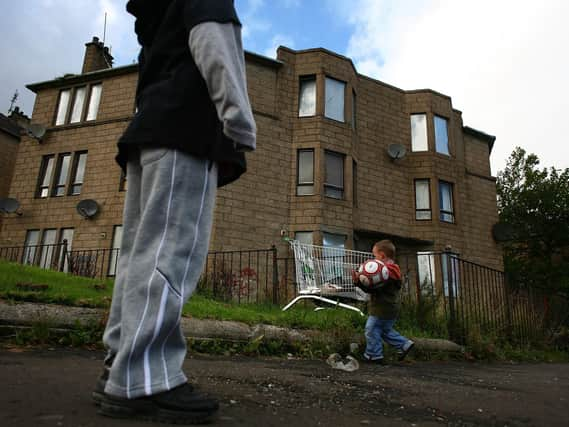Government 'failed to act' on social mobility recommendations


The Social Mobility Commission has called for a new dedicated unit, with action driven “from the heart of government” to tackle social mobility in the wake of the coronavirus pandemic.
The Commission, an independent advisory body, made the call after it claimed government departments failed to act on nearly a third of its recommendations in the last seven years.
Advertisement
Hide AdAdvertisement
Hide AdIt said that on 46 per cent of recommendations “there was some, but insufficient progress”.
Dame Martina Milburn, outgoing chairwoman of the commission, said: “Social mobility has never been more important.
“It is the poor and the young who will suffer most from the economic downturn.
“To succeed, action will need to be driven from the heart of government. At present, there is no meaningful co-ordination between departments on the social mobility agenda, and no single force championing social mobility across the Government.”
Advertisement
Hide AdAdvertisement
Hide AdThe commission projected further increases in child poverty due to benefit changes and the Covid-19 outbreak, echoing the findings of a report by the End Child Poverty commission last month, which warned children in Yorkshire were at “severe risk” of being swept further into poverty, with a steady four year rise in child poverty particularly hitting Hull and the East Riding.
The Social Mobility Commission found that children from black and minority ethnic groups are much more likely to be in poverty than children in white British families.
At 16, 24 per cent of disadvantaged students get a good pass in English and maths GCSEs, compared with 49.9 per cent of all other pupils.
Sandra Wallace, joint deputy chairwoman of the commission, said: “There needs to be a better way to ensure our advice is listened to and acted upon.”
Advertisement
Hide AdAdvertisement
Hide AdThe York-based Joseph Rowntree Foundation said the report was a “damning indictment” that so little progress has been made in improving young people’s chances.
Acting director Helen Barnard said: “As we chart a course through this period of considerable economic uncertainty, we have the chance to redesign the systems that are failing children and young people. Boosting targeted social security support for families with children would have an immediate and significant impact on child poverty.
“In the longer term, if the government is serious about spreading opportunity more evenly across the country through its ‘levelling up’ agenda it is also vital to invest in skills and transport, and increase the supply of decent and affordable homes.”
A Government spokesman said: “We remain committed to levelling up opportunity across the country, and continue to do all we can to make sure no-one is left behind as a result of coronavirus.”